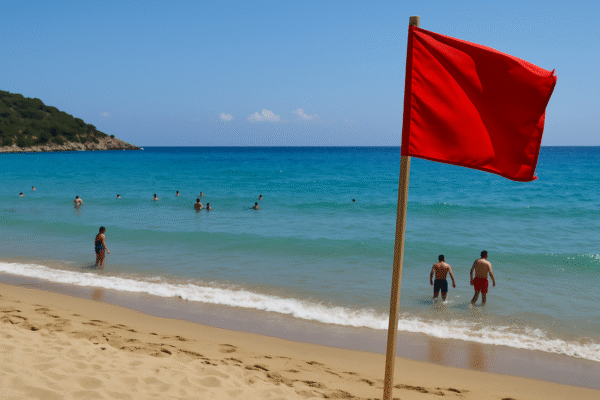Turkey Urges Caution for Beachgoers Amid Rising Jellyfish and Sea Urchin Risks
Turkey’s coastal regions are drawing more tourist visits than ever, but vacationers are being urged to stay extra vigilant due to an uptick in marine hazards. The UK Foreign Office has issued a fresh travel alert advising holidaymakers to take precautions around popular beaches as jellyfish and sea urchin sightings increase along the Mediterranean and Aegean shores. While Turkey remains a beloved destination, this warning underscores the importance of safety at sea.
Marine Hazards on the Rise
Summer brings vibrant beach scenes, but also a greater presence of marine life that can pose risks to swimmers. Jellyfish stings may result in severe pain, skin irritation, or allergic responses. Sea urchins, with their sharp spines, can cause painful puncture wounds that may become infected. Tourists are strongly encouraged to be aware and mindful of their surroundings to avoid unpleasant incidents while enjoying Turkey’s beautiful coastlines.
Stay Alert to Local Guidelines
Turkey’s beaches often feature warning systems—such as colored flags—to signal water safety conditions. A red flag typically means don’t enter the water. Visitors should always heed these indicators and follow instructions from lifeguards or beach patrols. Some beaches have also implemented protective nets or designated safe swimming zones to reduce jellyfish encounters.
Before heading into the water, it’s smart to check in with local authorities, your hotel, or lifeguards about current marine activity. Staying informed is the first step to a worry-free beach day.
Essential Safety Tips for Beachgoers
Here are practical steps to keep your visit safe and serene:
- Know the beach status: Ask locals, check at your hotel, or observe posted signs for any warnings about jellyfish or urchins.
- Foot protection matters: Wearing water shoes or sturdy sandals helps protect against stepping on sea urchins or hidden rocky hazards.
- Avoid high-risk areas: Areas with recent jellyfish sightings should be avoided, even if they seem inviting.
- Act fast if injured: If you’re stung or injured by marine life, seek medical attention immediately. Quick response reduces risks of infection or adverse reactions.
- Be first-aid aware: Familiarize yourself in advance with how to handle jellyfish stings and urchin injuries—knowing basic care can speed recovery.
Tourism Impact and Traveler Peace of Mind
Tourism is a key pillar of Turkey’s economy, so ensuring visitor safety is crucial. While the advisory highlights potential hazards, it’s unlikely to deter travellers who plan smart. The reminder enhances awareness, encouraging travelers to respect natural environments without fear.
The message reinforces that while Turkey’s beaches offer stunning escapes, nature’s unpredictability warrants caution. Safe planning ensures that these coastal havens remain enjoyable for everyone.
Broader Travel Safety in Turkey
Beyond beach safety, visitors should be mindful of general travel advice when exploring Turkey:
- Observe beach flags and lifeguard guidance: Always comply with posted warnings or siren alerts.
- Assess water flow and currents: Some beaches may have hidden undercurrents or rocky areas—avoid unknown spots.
- Secure travel essentials: This includes having medical insurance that covers emergencies, especially those related to marine or outdoor injuries.
- Check local rules and customs: Turkey’s diverse regions may have varying advisories—stay updated via local contacts.
Enjoy Turkey Safely
Turkey’s coastline remains a top getaway choice thanks to its clear waters, sun-kissed sands, and seaside charm. With thoughtful caution, visitors can savor the best of its beaches. A bit of awareness and preparation ensures that a sunny day by the sea stays fun—and injury-free.
Remember, being informed and cautious doesn’t detract from a holiday—it enhances your experience and keeps the wonders of Turkey safe and welcoming for everyone.
For more travel news like this, keep reading Global Travel Wire
















